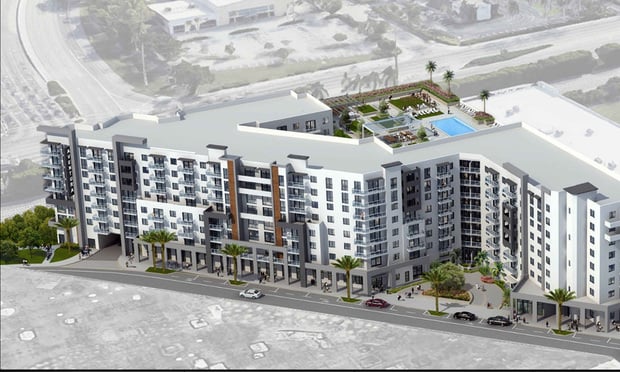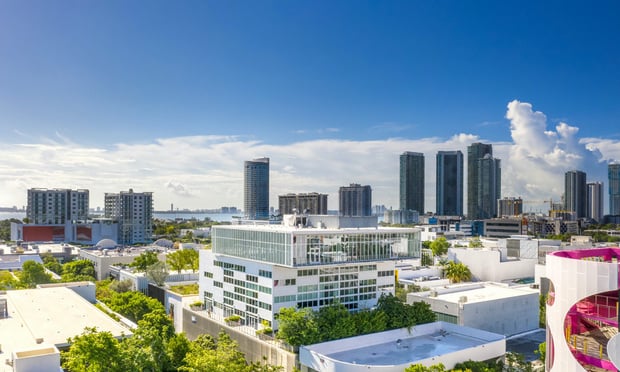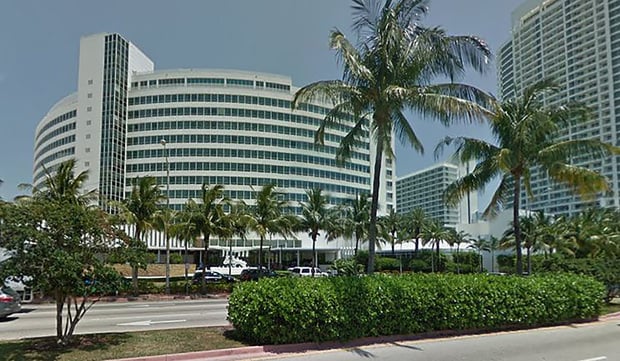(This story, in slightly different form, originally appeared in Incisive Media's Daily Business Review.)
MIAMI-Encouraged by declining prices in a battered economy, municipal governments in Miami-Dade County have become aggressive buyers of commercial properties as they look to expand their inventories of public space.
While many elected officials are asking city and county managers to trim budgets and staffs to make up cash shortfalls, the cities of Sunny Isles Beach and Miami Gardens are being encouraged by councils and commissions to take advantage of declining property prices. Both cities have made several recent commercial real estate acquisitions and are in talks with other owners to buy more properties.
Sunny Isles Beach on Aug. 20 bought a pair of adjacent commercial buildings at 16100 and 16200 Collins Ave. for $9.4 million, according to Miami-Dade records. The buildings will be razed to make way for a park. Commissioners are asking the administration to find new open space opportunities.
Miami Gardens has picked up about 60 acres in separate August deals, city manager Danny Crew says. The city closed Aug. 27 on the purchase of the 47-acre site of distressed townhome project Emerald Place for $8.9 million. As part of the deal with Cornerstone Developers, the city will give the developer back seven acres in exchange for a $3-million discount off the appraised value of the site, Crew says.
Miami Gardens also bought about 14 acres for $3.5 million from the Archdiocese of Miami on Aug. 7, according to Miami-Dade County records. The 18330 NW 12th Ave. site will house a senior citizens facility and a park, Crew says.
Both cities avoided tapping into cash reserves to make the recent purchases. Sunny Isles, which cut its overall budget by 12%, obtained a $20 million loan from Bank of America in May and has money saved in the city's capital improvements fund to cover remaining property acquisition and construction costs. Miami Gardens, in addition to the city's capital improvements fund, held two recent bond sales backed by Bank of America to cover the property costs.
While nobody has escaped the credit freeze unscathed, municipal governments are still considered by lenders to be qualified buyers and safe borrowers, says Steven Hurwitz, senior vice president of Continental Real Estate Cos. in Coral Gables.
"Banks know that governments have the ability to close," Hurwitz says. "The other thing is they are long-term players who don't buy land for appreciation or to sell in the near future. Obtaining financing isn't as much as an issue, as long as the [elected officials] give their approval."
Neither city is done shopping, the city managers say. "These are not routine transactions," Crew says. "You don't see elected officials signing off on these every day. It takes a lot of guts" in this economic climate.
And this is an optimal time for solvent governments to make acquisitions and shape their cities' futures, Hurwitz says. "This is a good opportunity for these governments to reclaim private land for the benefit of the public," he says. "They can take a [stalled] development site and turn it into a park or recreation center."
Want to continue reading?
Become a Free ALM Digital Reader.
Once you are an ALM Digital Member, you’ll receive:
- Breaking commercial real estate news and analysis, on-site and via our newsletters and custom alerts
- Educational webcasts, white papers, and ebooks from industry thought leaders
- Critical coverage of the property casualty insurance and financial advisory markets on our other ALM sites, PropertyCasualty360 and ThinkAdvisor
Already have an account? Sign In Now
*May exclude premium content© 2024 ALM Global, LLC, All Rights Reserved. Request academic re-use from www.copyright.com. All other uses, submit a request to [email protected]. For more information visit Asset & Logo Licensing.








